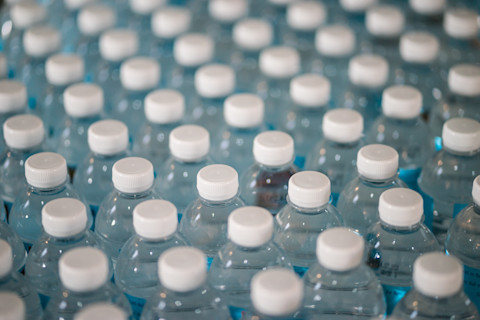Right now, the people drinking dirty water don’t just live in rural communities thousands of miles away. They live in Jackson, Mississippi.
For the people of Jackson, water scarcity has been an issue for years. Some have reported walking miles to purchase gallons of filtered water: a startling similarity to the journey we’ve witnessed on our trips to the field.
A month ago, the capital city of 150,000 issued a boil-water notice for residents. After decades of corrosion, officials warned that the tap system had been compromised by dangerous contaminants. A devastating flood on Monday further damaged the community’s infrastructure and devastated the local water treatment plant, resulting in many residents losing all access to running water.
Unfortunately, this isn’t the first time inequitable access to clean water has made national news.
In 2014, experts in Flint, Michigan confirmed that toxic levels of lead had been found in the city’s drinking water. Today, many residents continue to exclusively drink bottled water despite the local government’s continued effort to replace piped systems.
Recently, similar concerns have faced families in Benton, MI, Pittsburgh, PA, and Central Valley, CA: among many others.
Often, these crises remain unresolved long after their stories disappear from the headlines.
But it’s not enough to theorize about potential solutions or send well wishes from a distance. It is our collective commitment to action in times of crisis that reveals our true character and carries us through adversity.
There’s always something we can do to help.
At charity: water, we’re on a mission to end the water crisis in our lifetime through long-term, sustainable development. Our work centers in rural communities where access to clean water is a generational struggle caused by changing ecologies and limited infrastructure. For this reason, our 52 active implementing partners serve exclusively in Africa, India, and Southeast Asia.
We care deeply about dirty water wherever it can be found (both in the United States and abroad). We simply don’t have the resources or expertise to respond to humanitarian disasters within the United States. This isn’t about interest or urgency: it’s about our capacity to do our job with excellence.
But that doesn’t mean we’re powerless in the face of need. Right now, the best thing charity: water can do to bring clean water to the people of Jackson is elevate the life-saving efforts of other skilled not-for-profits. Dozens of organizations have already begun responding to the urgent need in Jackson, Mississippi, and throughout the United States. Here are two organizations we recommend:
The People’s Advocacy Institute: Donations to this fund will support the work of over thirty grassroots organizations throughout Mississippi. Your generosity today will help them provide long-overdue improvements to Jackson’s fragile water infrastructure.
The Jackson Free Clinic (JFC): Since 2021, this non-profit has been providing essential medical care to residents. To meet the immediate need of the local community, JFC is expanding its services to include the distribution of safe drinking water and hygiene products.
We want you to feel empowered to make the world a better place for yourself, those you love, and those you may never meet. Thankfully, we’re not alone in our work to ensure that every person—regardless of race, economic status, or nation of origin—has equal access to clean and safe drinking water.
We hope you choose to support our allies in Jackson, MS and throughout the U.S. Time and time again, you’ve gone above and beyond to demonstrate radical generosity amid disaster.
The crisis before us may seem strong. But together, we are stronger still.
Thank you.
— your friends at charity: water
Photo by: Jonathan Chng
